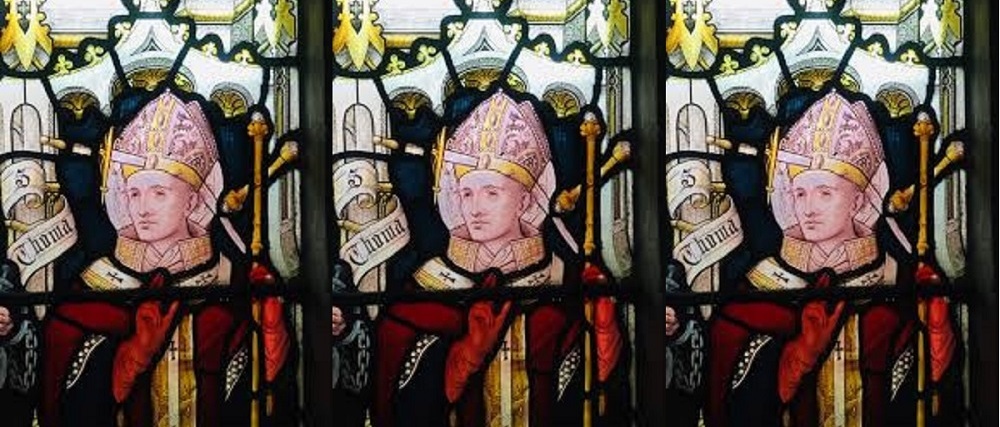Thomas Becket
Posted on 8th January 2021
Thomas Becket was born on 21 December (Feast Day of St Thomas the Apostle) around 1119 in Cheapside, London, son of Gilbert Becket and Matilda of Caen.
As a young man, Becket was sent to study at Merton Priory and later attended a grammar school in London. Due to financial problems of his father, Becket went to work as a clerk, securing a position in the household of Theobald of Bec, Archbishop of Canterbury.
Becket was sent by Theobald on several important missions to Rome; he also sent him to study canon law in Bologna and Auxerre, and later named him Archdeacon of Canterbury in 1154.
Theobald then recommended Becket to King Henry II, who later named him Lord Chancellor in January 1155.
Following the death of Theobald in 1161, Becket was nominated as Archbishop of Canterbury in 1162. He was appointed on 23 May, ordained a priest on 2 June and consecrated on 3 June 1162 by Henry of Blois, Bishop of Winchester.
Henry II believed that Becket would continue to put the wishes of the government first, however following his appointment to Archbishop, Becket was to place the rights of the church above all else and planned to extend the rights of the archbishopric (Office of the Archbishop). This led to a series of conflicts between Henry and the church, including one on the jurisdiction of secular courts over English clergymen.
The relationship between Henry and Becket had now completely broken down, and attempts were made by Henry in October 1163 to influence other bishops against Becket.
Henry sought bishop’s approval of the traditional rights of the royal government with less clerical independence and a weaker connection with Rome. He managed to convince all bishops except Becket, to sign the documents of the Constitutions of Clarendon.
Becket was then requested to appear before a great council at Northampton Castle on 8 October 1164, to answer charges of contempt of royal authority. Being convicted of the charges, Becket fled to France, gaining the support and protection of King Louis VII of France, there he stayed for six years, finally returning to England in 1170. He then set about excommunicating his opponents in the church.
Henry is believed to have made a statement, interpreted as wanting Becket dead. Four Knights then set about finding Becket at Canterbury Cathedral where they knifed him to death on 29 December 1170. He is buried in Canterbury Cathedral.
Thomas Becket, Archbishop of Canterbury was canonised by Pope Alexander III on 21 February 1173 in St Peters Church, Segni, Italy.
Tagged as: Junior Middle Ages
Share this post:





